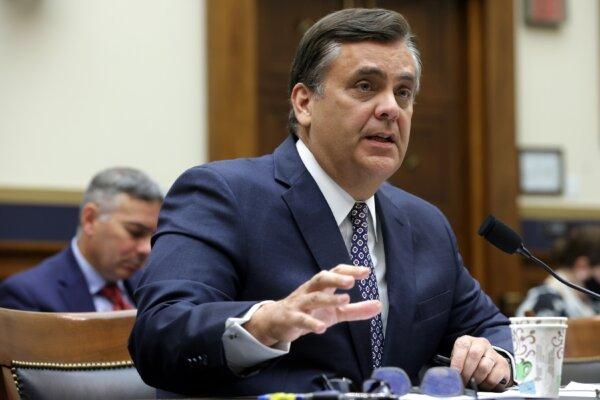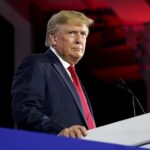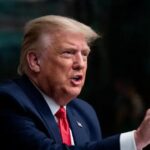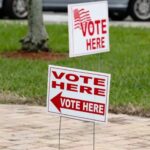By Jack Phillips
Two analysts have noted that special counsel Jack Smith might be on shaky legal ground in his federal election-related case against former President Donald Trump.
Neama Rahmani, a former federal prosecutor, said that the Trump charge of corruptly obstructing an official proceeding hasn’t been “extensively litigated” over the past several decades, adding that a ruling could come on whether it is appropriate in the former president’s case.
Multiple defendants who were charged in connection to the Jan. 6, 2021, Capitol breach have “argued that Congress certifying the electoral votes was not an ‘official proceeding’ and courts have universally rejected that argument,” she told Newsweek last week.
“This bigger question is, what satisfies the ‘corruptly’ requirement? Is it any criminal conduct, such as trespassing in the Capitol building or submitting fake electors? Or does the corrupt conduct have to relate to the other subsections of 1512, which prohibit destroying or concealing evidence?” she asked.
She continued: “If the corruption requires consciousness of guilt, then Trump can argue that he genuinely believed the election was stolen. Either way, this issue will likely end up before the United States Supreme Court because it is a novel issue that affects hundreds of criminal defendants, including the former president.”
Lawfare’s Roger Parloff wrote in a recent article that the Department of Justice (DOJ) recently won two “fragile” victories in two cases involving Jan. 6 defendants, and Mr. Smith has “relied on a statute” that was used by other prosecutors to charge at least 317 individuals in the Jan. 6 case.
“Smith has relied on that statute and its conspiracy equivalent, 18 U.S.C. § 1512(k), for two of the four counts in his indictment against former President Donald Trump for allegedly conspiring to overthrow the 2020 election,” Mr. Parloff wrote. “Those counts, whose legal sufficiency Trump challenged in a motion to dismiss this week, are the most serious leveled against Trump in that case, carrying a maximum 20-year term of imprisonment.”
Three appellants in a Jan. 6 case are now petitioning the U.S. Supreme Court to review a recent appeals court ruling that favored the DOJ, he noted, but he said that the D.C. appeals court judges “can’t agree about its holdings, and its holdings determine the viability of a 20-year felony that an ex-president and major presidential candidate now stands charged with violating.”
“Moreover, at the appeals court level, judges’ acceptance of the Justice Department’s interpretations of that law have been 100 percent correlated with the political party of the judge’s appointer,” he wrote. “If that trend continues, and if either case climbs one more rung up the appellate ladder, the department (and Mr. Smith) faces bleak prospects indeed.”

The comments come as constitutional law professor Jonathan Turley warned that the gag order targeting President Donald Trump is “unconstitutional” and said that an appeals court ruling to rescind the order last week was a “quite significant” development.
Several weeks ago, District of Columbia Judge Tanya Chutkan placed a gag order on the former president in the Jan. 6-related case, saying President Trump cannot speak about potential witnesses, court staff, or prosecutors. An appeals court in the district froze Judge Chutkan’s order late last week, with oral arguments being set for Nov. 20.
“They could have left it to continue, to continue while they reviewed it, but they decided perhaps in an abundance of caution to order this stoppage until they can give it a full review,” Mr. Turley, a professor for George Washington University, said on Fox News on Nov. 3. “The reason I think this could be quite significant is because I think the order is unconstitutional.”
He added that it is “very odd” to issue the order because the same court “insisted on having this trial before the election, sort of shoehorned it in before Super Tuesday,” referring to the key GOP presidential nominating date.
“And everyone in this election is going to be talking about these cases,” the law professor said, “except one person under this gag order and that is Donald Trump.”
With the order, the former president “can’t criticize the prosecutors, he can’t criticize witnesses, and special counsel Jack Smith just asked for this order to be expanded in an equally unconstitutional way, and that has drawn the criticism even of the ACLU, which is a staunch critic of Donald Trump, but the ACLU has said look, this is flagrantly unconstitutional,” Mr. Turley said, referring to the American Civil Liberties Union.
On Nov. 3, the D.C. Circuit Court of Appeals wrote they were pausing Judge Chutkan’s order to provide them more time to consider the former president’s request while his appeal continues. The three judges on the appeals court panel were all appointed by Democratic presidents, while Judge Chutkan was appointed by former President Barack Obama.
Judge Chutkan had ruled against President Trump’s attorneys and argued that the gag order was not illegal because the former president is a criminal defendant. The gag order was issued at the request of special counsel Jack Smith’s team of prosecutors, who claimed that the former president’s criticism of witnesses, the judge, prosecutors, and Washington itself threatened the integrity of their case.
The Trump legal team had argued that the order denied him the right to free speech, especially while he is the leading GOP candidate for president.






